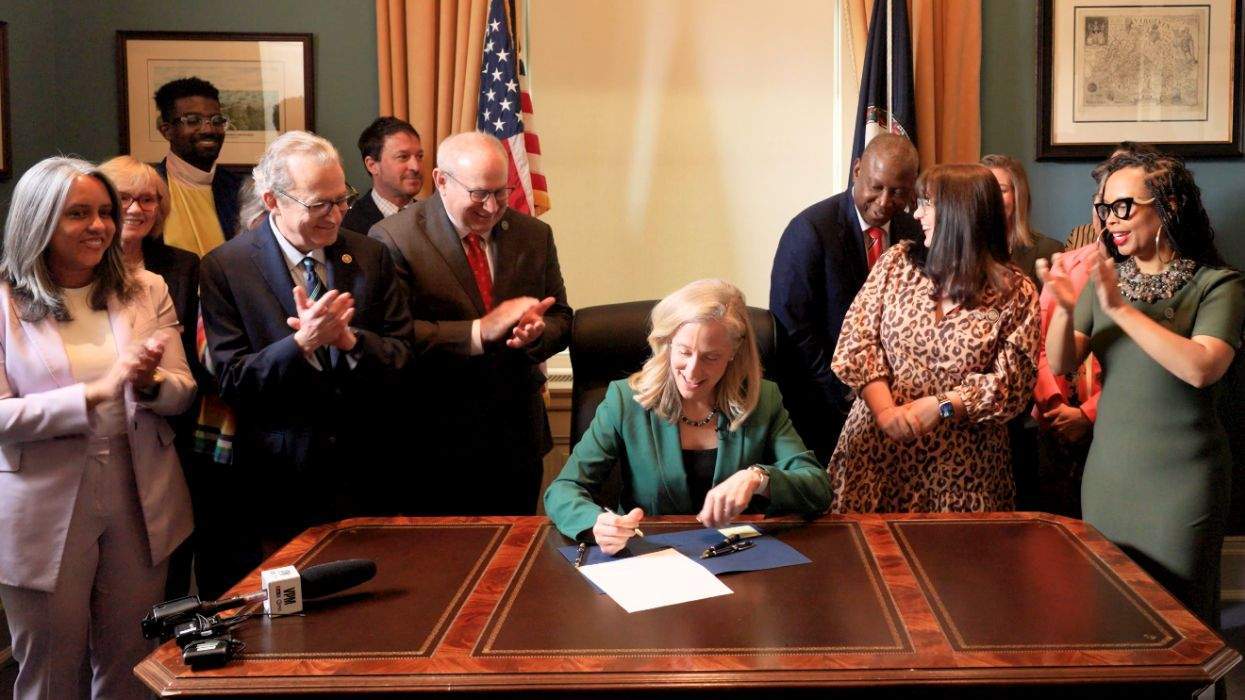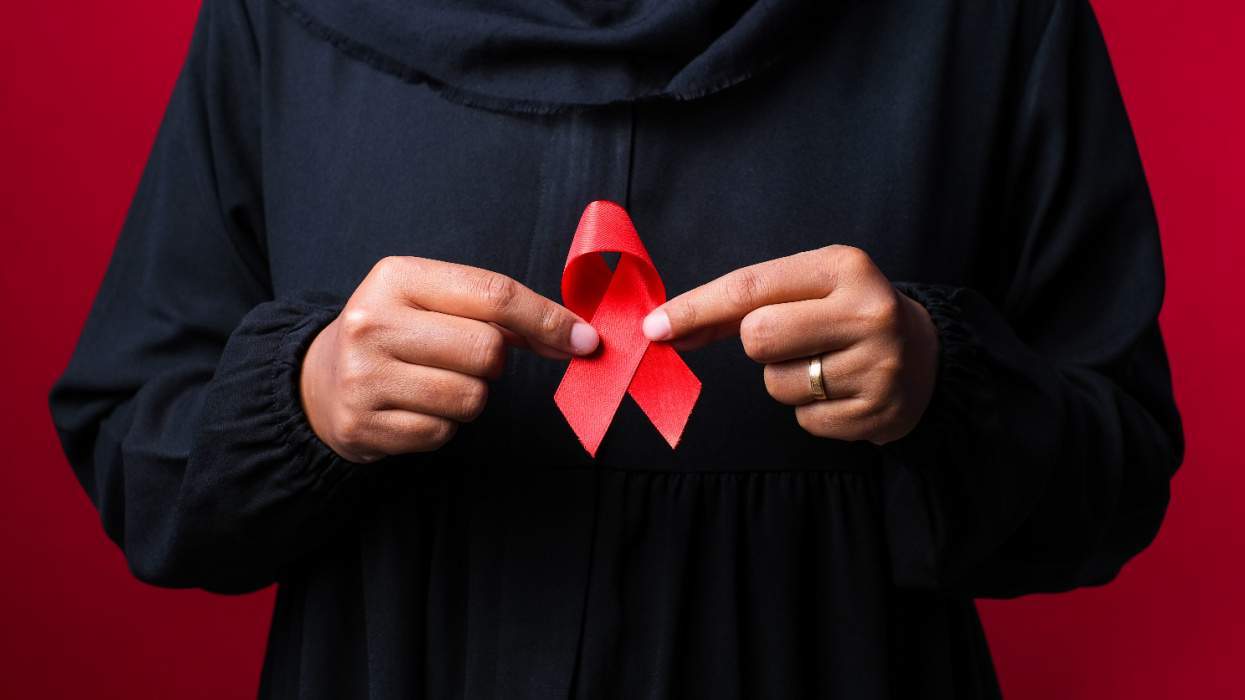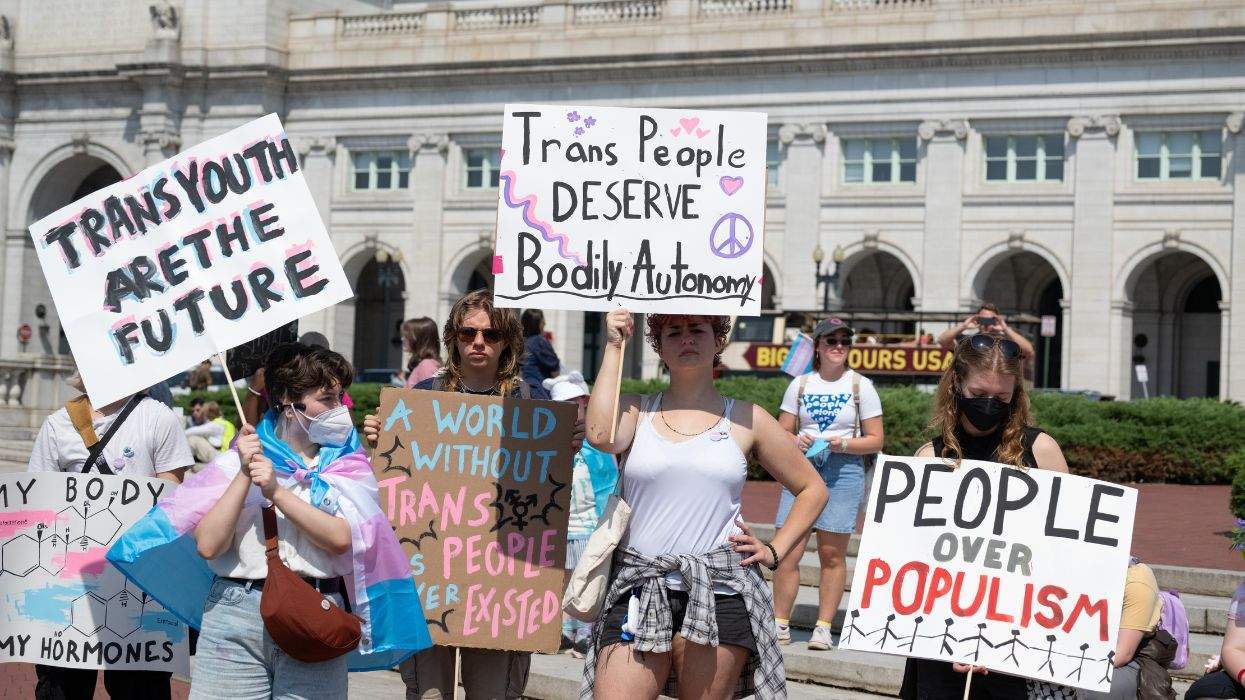The Senate on Wednesday diverted $2 billion from a $50 billion global AIDS bill to improve the lives of American Indians.
Senators mainly from the West successfully argued on the need to carve out a small portion of the five-year AIDS spending bill for Indian programs, saying Congress shouldn't forget a humanitarian crisis much closer to home.
''We don't have to go off of our shore to find third world conditions,'' said Sen. Byron Dorgan, D-N.D. The money would go to law enforcement, health and water projects in Indian country.
The agreement set the stage for passage of the AIDS bill as early as Wednesday evening. With that, the House and Senate would work out a final version to send to President Bush.
Bush, who first committed the United States to a campaign against AIDS in Africa during his 2003 State of the Union address, supports the legislation, which has been hailed for prolonging the lives of millions in Africa and other afflicted areas of the world.
The new bill would replace and significantly expand a $15 billion AIDS plan that Congress passed in 2003 at the president's urging. That act, which includes money to fight malaria and tuberculosis, expires at the end of September.
While the dramatic increase in spending met some resistance, supporters pointed to the notable successes of the past five years in treating those with HIV/AIDS and preventing the spread of the pandemic.
''We have the ability to prevent these illnesses, to treat them as never before, and to save lives,'' said Sen. John Sununu, R-N.H., a fiscal conservative. ''That's why this funding is so badly needed and will be so beneficial. This is greatest humanitarian crisis, I think, that I've seen.''
Among the issues the House and Senate will have to resolve is a Senate-added provision that would end a two-decade old policy whereby HIV-positive foreign nationals are restricted in getting travel visas and applying for residency in the United States.
The U.S. is one of a dozen countries -- including Sudan, Saudi Arabia, Libya and Russia -- that ban travel and immigration for HIV-positive people.
Even China, said Sen. John Kerry, D-Mass., recently changed that policy, deciding it was ''time to move beyond an antiquated, knee-jerk reaction'' to people with HIV.
''There's no excuse for a law that stigmatizes a particular disease,'' Kerry said Tuesday at a speech to the Center for Strategic and International Studies HIV/AIDS Task Force.
Kerry and Sen. Gordon Smith, R-Ore., are trying to repeal the ban, first implemented in 1987 and confirmed by Congress in 1993.
Under current law, HIV is the only medical condition explicitly listed under immigration law. The Kerry-Smith provision would make HIV equivalent to other communicable diseases where medical and public health experts at the Health and Human Services Department -- not consular officials at U.S. embassies -- determine eligibility for admission.
Those with HIV seeking legal permanent residency would still have to demonstrate they have the resources to live in this country and would not become a ''public charge.''
A spokeswoman for the House Foreign Affairs Committee said they were waiting to see the details of the final Senate bill before deciding what issues would need to be negotiated.
The President's Emergency Plan for AIDS Relief, known as PEPFAR, has helped bring lifesaving antiretroviral drugs to some 1.7 million people and has supported care for nearly 7 million, including some 2.7 million AIDS orphans and vulnerable children.
Before the program began, only 50,000 in all of sub-Saharan Africa were receiving antiretroviral drugs.
The Democratic-led Senate, rarely in agreement with the White House, gave Bush credit for initiating the program. Sen. Joseph Biden, D-Del., chairman of the Senate Foreign Relations Committee and a chief negotiator in crafting the bill, said PEPFAR is ''the single most significant thing the president has done.''
Indiana Sen. Richard Lugar, top Republican on the Foreign Relations Committee, and co-negotiator with Biden, said the program ''has helped to prevent instability and societal collapse in a number of at-risk countries.'' He added that it has ''facilitated deep partnerships with a new generation of African leaders and it has improved attitudes toward the United States in Africa and other regions.''
The bill that was passed by the House in April approved $50 billion, including $5 billion for malaria, $4 billion for tuberculosis, and $41 billion for AIDS. Of the AIDS money, a small percentage -- $2 billion next year -- would go to the international Global Fund to Fight AIDS, Tuberculosis and Malaria. Actual spending levels still have to be approved in annual appropriations bills. (Jim Abrams, AP)















